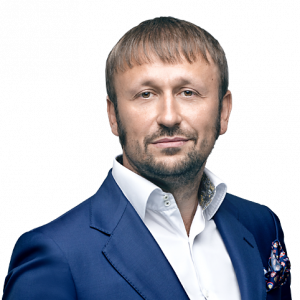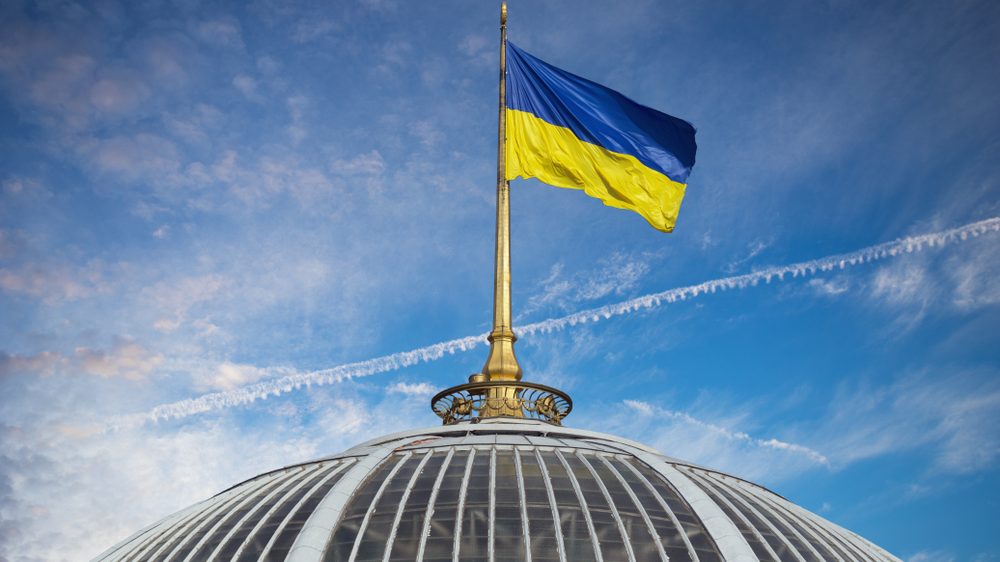On July 14, 2020, the Verkhovna Rada of Ukraine legalised gambling, a move which was lauded as “a historical event” for a country where the activity had been prohibited for almost a decade.
From that moment on, the Rada and cabinet ministers have been working on the adoption of all the necessary bylaws, as the country seeks to launch its regulated marketplace this year.

With the CIS region very much shooting towards the forefront of the industry’s agenda in recent times, CasinoBeats has been speaking to Andrey Astapov, managing partner at Eterna Law and member of the Expert Advisory Council of the Gambling and Lottery Regulation Commission of Ukraine, to get the latest developments emanating from the region.
Astapov says that “the big news” is that, in the near future, cabinet ministers will approve the licensing conditions for each type of gambling activity, meaning that the Gambling Commission is getting ready to start accepting applications and, ultimately, launch the gambling market in Ukraine.
With gambling having been outlawed countrywide for such an extensive period of time, Astapov begins by assessing why he believes it has taken so long to enact this regulatory agenda: “Developing the legal framework for the industry, which was prohibited and unregulated for many years, can be difficult for many reasons,” he says. “This process requires the in-depth analysis and consideration of all specifics of the industry, in general, as well as each gambling product.
“Lots of time is also given to continuing consultations with various stakeholders. Industry representatives, politicians, deputies of the parliament – everybody usually has different opinions. And, every such opinion shall be given fair consideration.
“Extensive public discussions started already at the early stages of the gambling law drafting. Initially, they led to the development of a few alternative gambling laws. And, later, to the many amendments introduced in the Verkhovna Rada.
“The aim was and continues to be the development of legislation that is accountable, consistent, and transparent”
“So, indeed, the adoption of the regulatory agenda was quite a lengthy process. Nevertheless, this only proves that drafting any good quality and comprehensible legislation is a long process, while different factors and approaches should be carefully analysed.”
With this in mind, and confidence expressed at significant developments coming to the fore in the near future, Astapov continues by touching upon what the approvals process will look like for those seeking to enter the market: “The licensing process is much simpler in comparison with other jurisdictions as the main goal of the authors of the gambling law was to launch the market quickly.
“The gambling organiser prepares and submits the package of documents to the Gambling Commission that has 15 days to consider the application. After that, the organiser either obtains the license or obtains the refusal with the right to resubmit the application.
“As to the requirements, the gambling law prescribes certain requirements for the gambling organiser. For example, essentially, the gambling organiser shall have the company registered in Ukraine, the authorised capital in the amount of 30 million hryvnias, and the bank guarantee for the payment of winnings. There are also a number of reputational and organisational requirements.”
As Ukraine heads towards the finish line in its struggles to legalise gambling, with a law that analysts say promises a lot, glances are taken elsewhere as Astapov examines what lessons have been taken from those already regulated jurisdictions: “The aim was and continues to be the development of legislation that is accountable, consistent, and transparent.
“Therefore, there is a clear understanding that the Ukrainian gambling legislation should be in line with the standards and usual world practices for the gambling regulation.
“The authors of the gambling law paid attention to many gambling practices in countries where the industry regulation withstood the test of time, including the national legal frameworks of Malta, the UK, Russia, and Georgia.
“The figures are only going to increase once the market starts to function legally”
“All frameworks were carefully analysed at the stage when the Ukrainian gambling law was only at the origins of its creation. As a result, the Ukrainian gambling law already implements the principle of responsible play, which include relevant methods to combat ludomania and related problems, anti-money laundering requirements as well as a range of other important principles.”
To conclude, and perhaps the most pertinent question posed to Astopov, we enquired as to what potential the Ukrainian market ultimately has?
“Ukraine’s return to legalised gambling is a big event for many big industry players,” he explains. “According to some market estimations, the volume of the Ukrainian gambling industry in the shadows amounted to more than 5bn Euros.
“The figures are only going to increase once the market starts to function legally. So, the potential of the Ukrainian market is huge. Though there are also many local operators interested in obtaining different gambling licenses, special attention is received from foreign investors and large international brands in the gambling industry.
“Currently, online gambling is more promising due to the pandemic. However, in the near future, land-based gambling is also going to recover. As Ukraine is known for its very good location in Europe, it is an accessible and attractive touristic destination. So, it has lots of benefits for those investors who search for alternative markets to open land-based casinos or betting points.”













